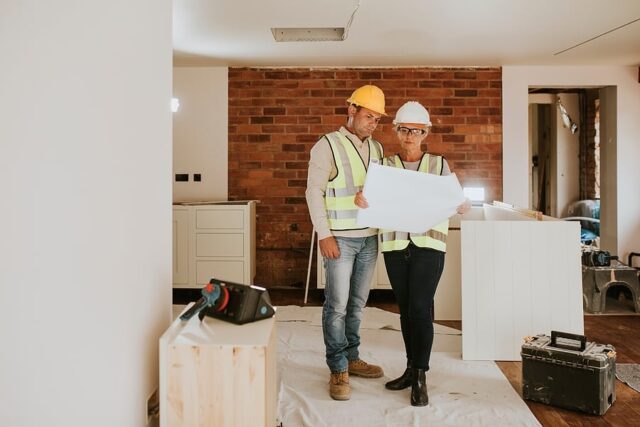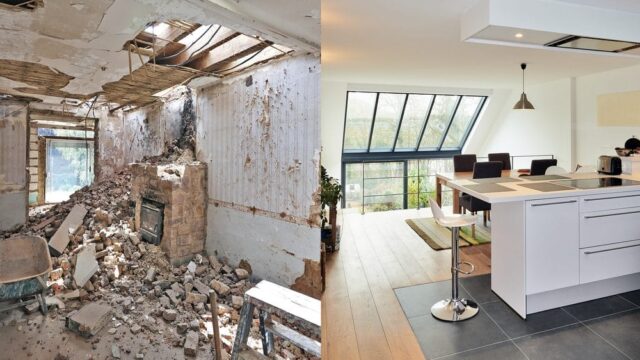
Colorado’s strong economic growth presents numerous opportunities for real estate investors to make significant profits through house flipping. As reported by the 2021 census, the state’s population has risen by over 15% in the past decade, driven by factors such as its progressive legislation, picturesque natural beauty, and abundance of outdoor activities, which contribute to its high quality of life. This attracts retirees, families, and those seeking new experiences.
As a house flipper, it is natural to ask if one can make a sustainable income through house flipping in Colorado. This article aims to provide an overview of the Colorado real estate market and offer insights on how to make a profit by flipping houses in the state.
House Flipping: Defined
“House flipping” is buying a house, renovating it, and then reselling it for a profit. The process includes purchasing the property, making repairs, and estimating if the resale price will cover these costs and generate a profit. The goal of flipping houses in Colorado is to make a significant profit quickly. Investors often target properties sold at a lower price at auction or in foreclosure, renovating them to increase their value and reselling them for a profit.

Average Cost to Flip a House in Colorado
The standard cost for flipping a house in Colorado is around 10% of the purchase price. This cost includes expenses for various contractors, such as electricians, plumbers, real estate agents, and the following:
- The purchase price of the home
- Expenditures for repairs and renovations
- Property taxes
- Utility costs
- Expenses related to reselling the property
- Closing costs associated with the sale
Factors to Consider Before House Flipping in Colorado
Before jumping into house flipping in Colorado, it is important to consider various factors to ensure that the investment is sound and profitable. The following are some of the factors to consider before embarking on a house flipping project:
- Real estate market conditions and trends: Understanding the current real estate market conditions and trends in Colorado is crucial in determining the right time to buy and sell properties. Factors such as supply and demand, interest rates, and home prices can impact the success of a house flipping project.
- Financing options and terms: House flipping often requires significant upfront investment, so it is important to consider financing options and terms available.
- Local regulations and zoning laws: It is crucial to have a good understanding of local regulations and zoning laws in Colorado, which may affect the design and construction of the property, as well as the permits required.
- Availability of reliable contractors and suppliers: House flipping requires working with various contractors and suppliers to complete the renovation process. It is essential to identify reliable and skilled contractors and suppliers who can deliver quality work on time and within budget.

Advantages of House Flipping
- High Earnings Potential: One of the main benefits of house flipping is the potential for increased profits. For those interested in real estate investment, flipping houses can be a great way to earn money.
- Networking Opportunities: Through flipping houses, you can connect with individuals in the real estate industry, such as motivated sellers, contractors, lenders, agents, and lawyers. You can find opportunities to network at events like seminars, auctions, and conferences.
- Career Potential: With hard work and dedication, house flipping can become a full-time profession. It can be a viable business venture if you can network and build a skilled team.
- Control: House flippers have a high level of autonomy and are responsible for making most decisions. This includes control throughout a project, the amount of work involved, and spending.
Disadvantages of House Flipping
- Hidden Costs: Flipping a house often involves unexpected expenses, such as hidden repairs or maintenance issues. These can significantly impact the budget and profitability of a project. House flippers must conduct thorough inspections and research before purchasing a property to avoid these surprises.
- Legal Risks: Legal issues such as disputes over ownership or zoning regulations can arise when flipping a house. To minimize these risks, conduct a thorough title check and ensure that all necessary permits and approvals are obtained before beginning any work.
- Ongoing Maintenance Costs: Even when flipping a house, there will be ongoing costs, such as property taxes and utilities, associated with owning a property. These should be factored into the budget and considered when determining the potential profitability of a project.
- Repairs and Renovations: These can significantly impact the value of a property and the ease of flipping it. Structural issues and major repairs can be costly and time-consuming to fix and may make it more challenging to sell the property for a profit. So, it’s essential to consider the potential costs and benefits of any repairs or renovations.

Common House Flipping Mistakes To Avoid
1. Insufficient funding
Not having enough money aside for unexpected expenses is a common mistake new house flippers make. It’s essential to have access to emergency funds, such as loans or financing. To secure homes in Colorado quickly, you must have the necessary documents prepared ahead of time.
2. Lack of planning
A successful flip requires careful planning and execution. New investors often overlook potential challenges and fail to do their research, build relationships with industry experts, and create a comprehensive plan.
3. Neglecting to assemble a skilled team
You can only complete a house flipping project with the help of a competent team of professionals, including real estate specialists, contractors, plumbers, and more. Investing in a skilled and cohesive team can save you time, effort, and money in the long run.
4. Failing to inspect the property thoroughly
To identify a property that can be quickly repaired and flipped for profit, it’s crucial to thoroughly inspect it before making a purchase. For a foreclosed home to be a worthwhile investment, it should require fewer repairs than comparable properties.

Key Takeaway
Before embarking on a house-flipping venture in Colorado, it’s crucial to do your due diligence. This means researching the pros and cons of the business. Remember that without proper planning and preparation, investing in house flipping can be akin to going into battle without armor. It’s important to have enough funds, a solid plan, and a team of experienced professionals to help you navigate the process and be successful in the business.









